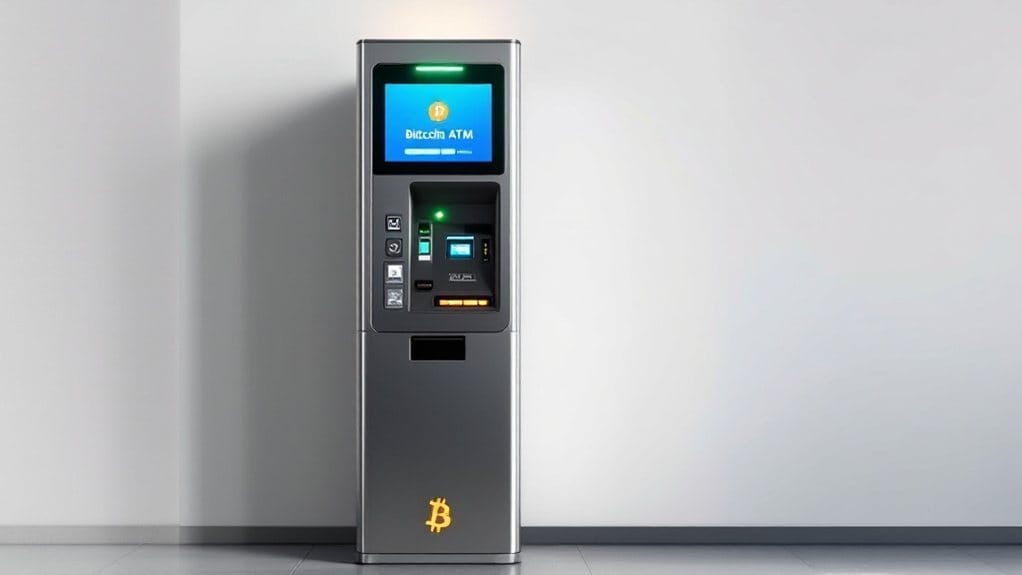Ethereum (ETH) currently trades at $2,032.06 on the Kraken exchange, showing a 2.51% decline over the past 24 hours and a 23.37% decrease over the last month. The cryptocurrency has demonstrated significant market activity with $72,459,331 worth of ETH traded in the recent 24-hour period, involving 34,246 tokens. Despite short-term volatility, Ethereum’s fundamental strengths and network improvements suggest potential for price stabilization in the broader market landscape.

Ethereum (ETH), the alternate-largest cryptocurrency by market capitalization, currently trades at $2,032.06 on Kraken, reflecting a notable decline of 2.51% in the past 24 hours and a more substantial decrease of 23.37% over the last month.
Trading activity on Kraken has remained robust, with $72,459,331 worth of Ethereum exchanged in the last 24 hours, involving 34,246 ETH tokens and demonstrating significant market liquidity.
Kraken’s vigorous ETH trading volume of $72.4M and 34,246 tokens underscores the market’s strong liquidity and sustained investor engagement.
Technical analysis reveals mixed signals in the current market environment, with bearish indicators such as shooting stars and doji patterns emerging near the trading range’s peak, while bullish engulfing patterns suggest sustained buyer interest at key support levels. Analysis suggests a potential rally if ETH maintains the key support zone $2,050-$2,100.
The cryptocurrency has experienced considerable volatility over the past year, reaching a high of $4,070.60 and a low of $2,120.13, resulting in a 44.99% decline during this period. Today’s Kraken purchase volume of 33,868 ETH worth $68,082,205 indicates substantial institutional interest.
The Ethereum network’s fundamental strengths continue to support its market position, particularly its role as the leading platform for decentralized finance (DeFi), non-fungible tokens (NFTs), and Web3 applications. The implementation of Layer-2 solutions has significantly improved transaction speeds and reduced gas fees while maintaining network security.
The recent shift to proof-of-stake consensus mechanism has improved the network’s energy efficiency and sustainability profile, while potentially introducing deflationary tokenomics that could support price stability in the long term.
However, several challenges persist in the Ethereum ecosystem, including high gas fees that impact scalability and growing competition from alternative Layer 1 blockchains.
Market participants must also navigate diverse risk factors, including potential security vulnerabilities, regulatory uncertainties, and broader macroeconomic conditions that influence cryptocurrency markets.
Despite these challenges, Ethereum’s robust trading volumes and extensive developer ecosystem continue to reinforce its position as a fundamental component of the cryptocurrency landscape, with market movements closely monitored by investors and analysts for signs of future price direction.
FAQs
How Long Does It Take to Mine One Ethereum?
Mining one Ethereum depends primarily on hashrate capacity and network difficulty.
With a typical 100MH/s hashrate setup, it takes approximately 403 days to mine one ETH, while a more powerful 2000MH/s system can reduce this to about 20 days.
However, since Ethereum’s shift to proof-of-stake, traditional mining is no longer possible, and validators now earn rewards through staking instead.
Can Ethereum Be Converted to Physical Cash?
Ethereum can be converted to physical cash through cryptocurrency exchanges and platforms like Revolut, which facilitate the conversion of ETH to USD at current market rates.
Users can sell their ETH holdings, transfer the resulting funds to their bank accounts, and withdraw physical cash from ATMs or banks.
The conversion process typically involves transaction fees and may take 1-5 business days for bank transfers to complete.
Which Countries Have Banned Ethereum Trading?
While no countries have explicitly banned Ethereum trading specifically, several nations maintain strict restrictions on cryptocurrency trading in general.
China has implemented the most extensive restrictions, prohibiting cryptocurrency exchanges and mining operations.
Other countries with significant limitations include:
- Algeria
- Bangladesh
- Egypt
- Iraq
- Morocco
- Nepal
- Qatar
These restrictions typically affect all cryptocurrencies, including Ethereum, through banking prohibitions and exchange limitations.
What Is the Minimum Amount Required to Stake Ethereum?
The minimum requirement for solo staking Ethereum is 32 ETH, which equates to approximately $67,808 at current market rates.
However, alternative staking options exist for investors with smaller holdings, including staking pools and exchanges that allow participation with lower amounts.
These pooled staking services typically require minimum deposits ranging from 0.1 ETH to 1 ETH, making staking more accessible to retail investors.
How Many Transactions Can Ethereum Process per Second?
Ethereum currently processes approximately 30 transactions per moment (TPS) on its base layer, which has been a limiting factor for network scalability.
However, with the implementation of Ethereum 2.0 upgrades, including sharding and Proof of Stake mechanisms, the network is expected to handle up to 100,000 TPS.
This significant increase in processing capacity aims to address current network congestion and enable more efficient handling of complex transactions.









